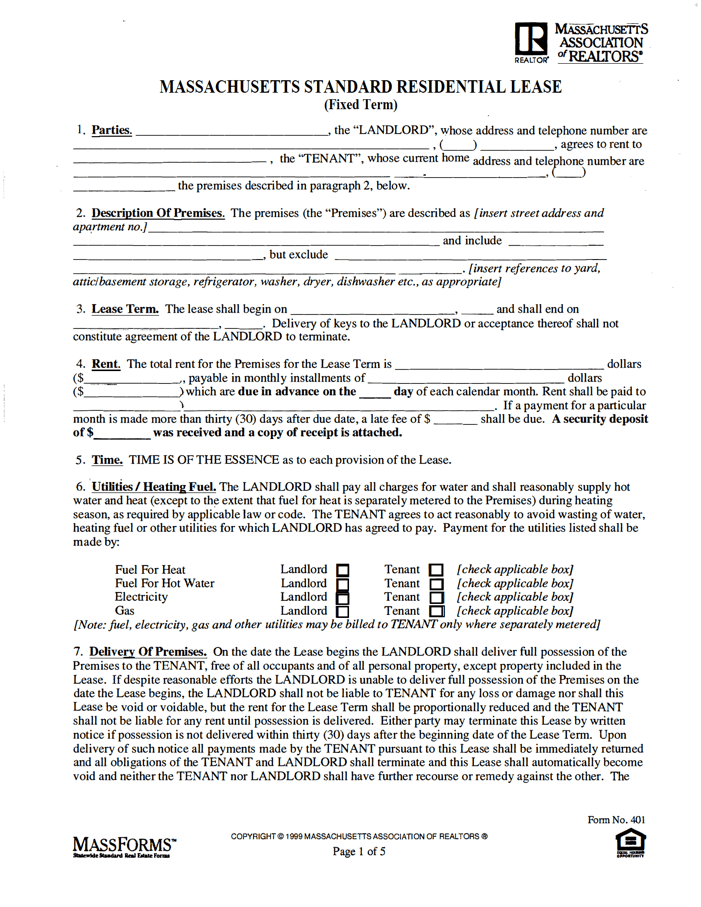Massachusetts Standard Residential Lease Agreement | Form 401
The Massachusetts Association of Realtors Standard Residential Lease Agreement (Form 401) is a document that allows a landlord to set the base rules and expectations in regards to the renting of a residential property that are to be strictly followed by the tenants until the contract’s termination. During move-in procedures (after the parties sign the lease), it is normal practice for the landlord to charge a security deposit; MA Ch. 186 § 15B restricts landlords from charging more than one (1) month’s rent. Before entering into the formally binding lease contract, the landlord or property manager should require all tenant(s) to complete a rental application. This provides an extra level of protection to verify the parties are trustworthy and have had positive renting experiences in the past.
Tenant Screening: Massachusetts Rental Application
State Laws & Resources
Laws: Ch. 186, §§ 1A to 29 & Ch. 186a, §§ 1 to 6
Maximum Security Deposit (§ 15B): One (1) months’ rent.
Returning Security Deposits: After the lease has terminated, landlords have thirty (30) days to return security deposits, regardless of whether or not deductions were made. If the landlord decides deductions should be made from the deposit, they must provide the tenant(s) with a written list of damages, the cost of repairing the damage (labor and materials), as well as provide any receipts that resulted from the repairs. Normal wear and tear cannot be considered as damage to the unit.
Massachusetts Right’s Guidebook: The state Attorney General provides a free guidebook called the “Guide to Landlord/Tenant Rights” for navigating the privileges afforded to both landlords and tenants. Although reading through the actual statutes is recommended, the guidebook provides as a handy alternative, explaining topics without the legal jargon found in formal laws.
Examples of Terms that Cannot be Included in the Lease:
- Terms that restrict the tenant from joining a tenant’s union.
- Those that prevent the tenant from suing the landlord, namely for violations of the state’s Sanitary Code.
- Wording requiring that the tenant has to pay for expenses relating to the standard “wear and tear” of the rental.
- A section stating that the tenant is responsible for making repairs in parts of the building other than their rental.
